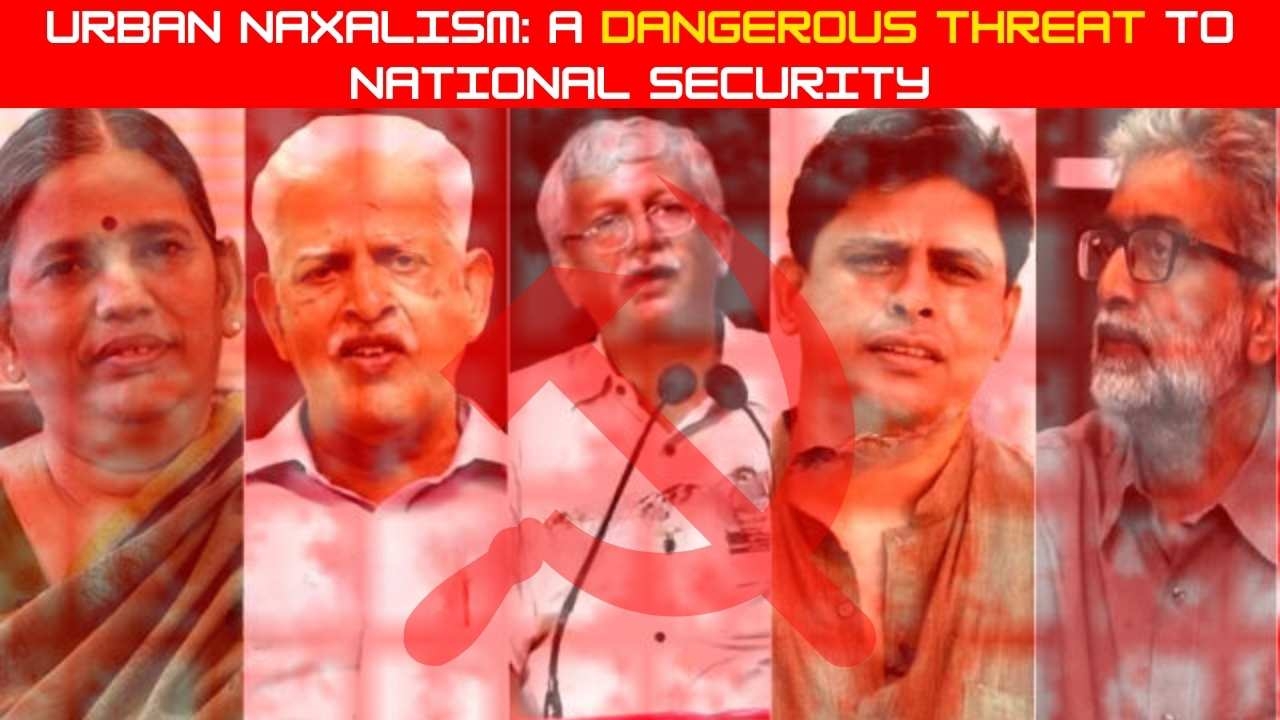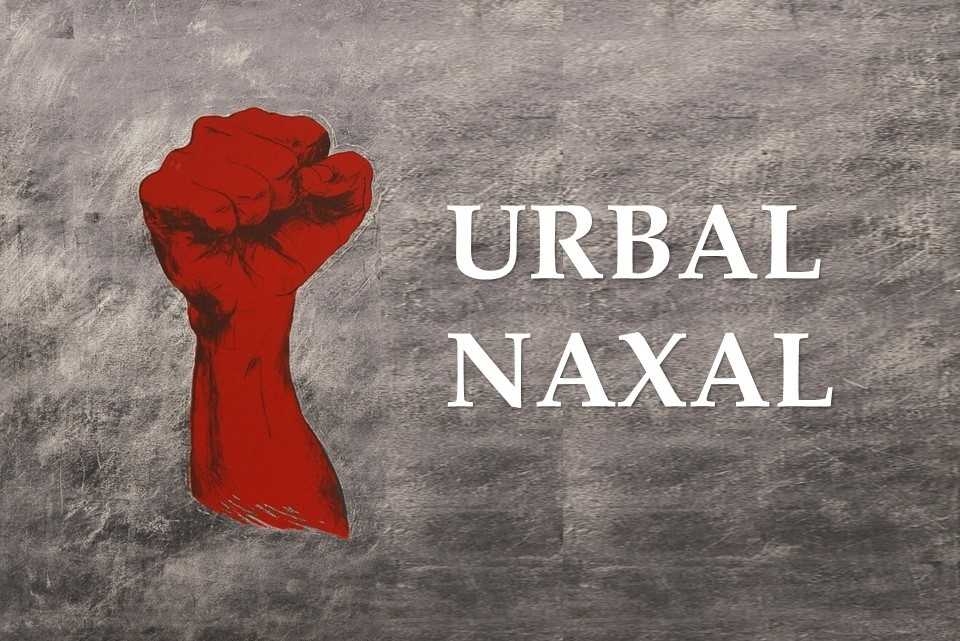Urban Naxalism: A Dangerous Threat to National Security
27 Oct 2024 12:08:07

Urban Naxalism represents a deeply embedded, insidious form of extremism that threatens Bharat's security, unity, and democratic fabric. Over the years, Naxalism, originating in rural pockets of socio-economic deprivation, has found its way into urban centres, where its adherents—often intellectuals, journalists, and activists—allegedly champion social causes as a front to advance anti-national narratives.
While overt Naxalite violence is largely restricted to Bharat's red corridor, Urban Naxalism, in its more discreet form, utilises urban platforms to mobilise support, fund extremist activities, and propagate disruptive ideologies.
At its core, Urban Naxalism aims to destabilise Bharat's political and social systems by undermining public trust in democratic institutions. These individuals exploit legitimate issues—such as poverty, caste discrimination, and government inefficiencies—as opportunities to fuel resentment against the state.
However, rather than advocating for constructive change, they foster division, targeting vulnerable groups and recruiting them to promote radical agendas under the pretence of social justice.
The influence of Urban Naxalism is pervasive in educational and cultural institutions, where individuals with strong ideological leanings seek to mould impressionable minds toward their radical beliefs.
These actors use their positions to foster a narrative that vilifies the Bharatiya state, casting it as an oppressive entity. By doing so, they risk creating a generation disillusioned with democracy, susceptible to extremist ideologies that can have violent outcomes.

Furthermore, Urban Naxals often rely on sophisticated propaganda to infiltrate and manipulate public opinion, utilising media platforms and social networks to spread their message. Social media, particularly, has proven a potent tool for disseminating inflammatory content and rallying like-minded individuals.
The use of online platforms allows Urban Naxals to operate under the radar, reaching a wide audience while concealing the true motives behind their messaging.
The ramifications of Urban Naxalism are serious and far-reaching. Security agencies have identified multiple instances where Urban Naxal activities have been linked to organised violence, revealing a clear connection between urban ideological proponents and rural insurgents.
In several documented cases, Urban Naxals have reportedly provided funds, logistic support, and strategic guidance to insurgent groups, facilitating attacks against the state. This direct link between urban intellectual circles and violent movements underscores the gravity of Urban Naxalism as a threat to national security.
The challenge in addressing Urban Naxalism lies in its ability to cloak itself as intellectual dissent. By positioning themselves as activists, Urban Naxals effectively exploit Bharat's commitment to free speech and democracy to shield their activities from scrutiny. In democratic societies, dissent is not only allowed but encouraged.
However, Urban Naxals blur the line between constructive criticism and subversion, manipulating public sympathies to mask their agenda. They divert attention from their destructive motives by framing any government response as an infringement on civil liberties, effectively deterring authorities from taking necessary actions.

Bharat’s legal and law enforcement mechanisms are increasingly aware of the need to counter Urban Naxalism, yet navigating this threat remains challenging. Law enforcement agencies face public backlash and accusations of stifling dissent whenever action is taken against those suspected of Urban Naxal ties.
Moreover, as individuals embedded in Urban Naxal networks are often well-connected and enjoy societal support, any attempt to bring them to justice can be met with formidable opposition, further complicating efforts to dismantle these networks.
Addressing Urban Naxalism requires a multipronged approach. The first step lies in raising public awareness of the ways these extremist elements manipulate social causes to spread their ideologies.
Educational institutions and cultural spaces need to implement safeguards that prevent ideologically driven agendas from influencing young minds. Additionally, the media must play a responsible role by exercising due diligence before giving visibility to voices that may have ulterior motives beyond the issues they claim to represent.
The government must also be vigilant in its response, distinguishing between genuine dissent and subversive activities. Establishing stronger surveillance and monitoring mechanisms can help identify links between urban groups and rural insurgents, allowing authorities to target the support networks that enable Naxal activities. Swift and effective legal actions must be taken to deter individuals or groups found guilty of aiding or abetting extremism.
The rise of Urban Naxalism is a reminder that threats to national security are not always external or violent. They can emerge from within, masked in intellectual discourse and advocacy.
Bharat's democracy cannot afford to overlook this threat; it requires a balanced but firm approach to safeguard its social fabric and ensure that voices raised in dissent contribute positively rather than sow discord.
Urban Naxals, under the guise of progressive activism, jeopardise the stability and unity of the nation—a threat that Bharat must confront with resolve.
Article by
Shomen Chandra
Sub Editor, The Narrative